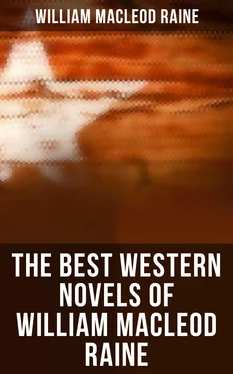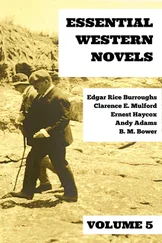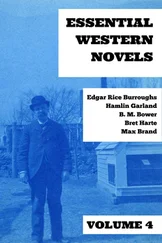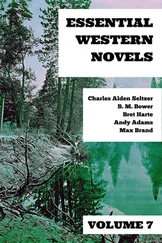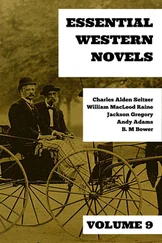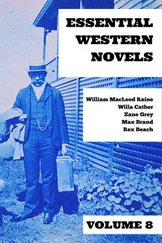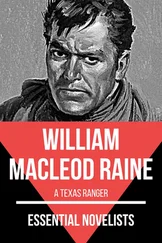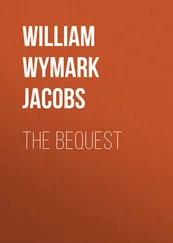"That wouldn't be a square deal, Phil. He's our prisoner, and he has killed one of our men. It wouldn't be right for one of us to meet him on even terms."
"Give me a gun, and I'll meet all of you!" cried Weaver, eyes gleaming.
"By God, you're on! That's a sporting proposition," Sanderson retorted promptly. "Lets us out, too. I don't fancy killing in cold blood, myself. Of course we'll get you, but you'll have a run for your money first, by gum."
"Maybe you'll get me, and maybe you won't. Is this little vendetta to be settled with revolvers, or rifles?"
"Make it rifles," Phil suggested quickly.
There was always a chance that, if the battle were fought at long range, the cattleman might reach the hill cañons in safety.
Keller was helpless. He lived in a man's world, where each one fought for his own head and took his own fighting chance. Weaver had proposed an adjustment of the difficulty, and his enemies had accepted his offer. Even if the Sandersons would have tolerated further interference, the cattleman would not.
Moreover Keller's hands were tied as to taking sides. He could not fight by the side of the owner of the Twin Star Ranch against the father and brother of Phyllis. There was only one thing to do, and that offered little hope. He slipped quietly from the room and from the house, swung to the back of a horse he found saddled in the place and galloped wildly down the road toward the schoolhouse.
Phyllis had much influence over her father. If she could reach the scene in time, she might prevent the duel.
His pony went up and down the hills as in a moving-picture play.
Meanwhile terms of battle were arranged at once, without haggling on either side. Weaver was to have a repeating Winchester and a belt full of cartridges, the others such weapons as they chose. The duel was to start with two hundred and fifty yards separating the combatants, but this distance could be increased or diminished at will. Such cover as was to be found might be used.
"Whatever's right suits me," the cattleman said. "I can't say more than that you are doing handsomely by me. I reckon I'll make that declaration to some of your help, if you don't mind."
The horse wrangler and the Mexican waiter were sent for, and to them the owner of the place explained what was about to occur. Their eyes stuck out, and their chins dropped, but neither of the two had anything to say.
"We're telling you boys so you may know it's all right. I proposed this thing. If I'm shot, nobody is to blame but myself. Understand?" Weaver drove the idea home.
The wrangler got out an automatic "Sure," and Manuel an amazed " Si, senor ," upon which they were promptly retired from the scene.
Having prepared and tested their weapons, the parties to the difficulty repaired to the pasture.
"I'd like to try out this gun, if you don't mind. It's a new proposition to me," the cattleman said.
"Go to it," nodded Slim, seating himself tailor-fashion on the ground and rolling a cigarette. He was a black, bilious-tempered fellow, but this particular kind of gameness appealed to him.
Weaver glanced around, threw the rifle to his shoulder, and fired immediately. A chicken, one hundred and fifty yards away, fell over.
"Accidents will happen," suggested Slim.
"That accident happened through the neck, you'll find," Weaver retorted calmly.
"Betcher."
Buck dropped another rooster.
"You ain't happy unless you're killing something of ours," Slim grinned. "Well, if you're satisfied with your gun, we'll go ahead and see how good you are on humans."
They measured the distance, and Sanderson called: "Are you ready?"
"I reckon," came back the answer.
The father gave the signal—the explosion of a revolver. Even as it flashed, Buck doubled up like a jack rabbit and leaped for the shelter of a live oak, some thirty yards distant. Four rifles spoke almost at the same instant, so that between the first and the last not a second intervened. One of them cracked a second time. But the runner did not stop until he reached the tree and dropped behind its spreading roots.
"Hunt cover, boys!" the father gave orders. "Don't any of you expose yourself. We'll have to outflank him, but we'll take our time about it."
He got this out in staccato jerks, the last part of it not until all were for the moment safe. The strange thing was that Weaver had not fired once as they scurried for shelter, even though Phil's foot had caught in a root and held him prisoner for an instant while he freed it. But as they began circling round him carefully, he fired—first at one of them and then at another. His shooting was close, but not one of them was hit. Recalling the incident of the chickens, this seemed odd. In Slim's phrasing, he did not seem to be so good on "humans."
Behind his live oak, Buck was so well protected that only a chance shot could reach him before his enemies should outflank him. How long that would have taken nobody ever found out; for an intervention occurred in the form of a flying Diana, on horseback, taking the low fence like a huntress.
It was Phyllis, hatless, her hair flying loose—a picture long to be remembered. Straight as an arrow she rode for Weaver, flung herself from the saddle, and ran forward to him, waving her handkerchief as a signal to her people to cease firing.
"Thank God, I'm in time!" she cried, her voice deep with feeling. Then, womanlike, she leaned against the tree, and gave way to the emotion that had been pent within her.
Buck patted her shoulders with awkward tenderness.
"Don't you! Don't you!" he implored.
Her collapse lasted only a short time. She dried her tears, and stilled her sobs. "I must see my father," she said.
The old man was already hurrying forward, and as he ran he called to his boys not to shoot. Phyl would not move a single step of the way to meet him, lest they take advantage of her absence to keep up the firing.
"How under heaven did you get here?" Buck asked her.
"Mr. Keller came to meet me. I took his horse, and he is bringing the buggy. I heard firing, so I cut straight across," she explained.
"You shouldn't have come. You might have been hit."
She wrung her hands in distress. "It's terrible—terrible! Why will you do such things—you and them?" she finished, forgetting the careful grammar that becomes a schoolmarm.
Buck might have told her—but he did not—that he had carefully avoided hitting any of her people; that he had determined not to do so even if he should pay for his forbearance with his life. What he did say was an apologetic explanation, which explained nothing.
"We were settling a difference of opinion in the old Arizona way, Miss Phyl."
"In what way? By murdering my father?" she asked sharply.
"He's covering ground right lively for a dead one," Buck said dryly.
"I'm speaking of your intentions. You can't deny you would have done it."
"Anyhow, I haven't denied it."
Sanderson, almost breathless, reached them, caught the girl by the shoulders, and shook her angrily.
"What do you mean by it? What are you doing here? Goddlemighty, girl! Are you stark mad?"
"No, but I think all you people are."
"You'll march home to your room, and stay there till I come."
"No, father."'
"Yes, I say!"
"I must see you—alone."
"You can see me afterward. We'll do no talking till this business is finished."
"Why do you talk so? It won't be finished—it can't," she moaned.
"We'll attend to this without your help, my girl."
"You don't understand." Her voice fell to the lowest murmur. "He came here for me."
"For you-all?"
"Oh, don't you see? He brought me back here because he—cared for me." A tide of shame flushed her cheeks. Surely no girl had ever been so cruelly circumstanced that she must tell such things before a lover, who had not declared himself explicitly.
Читать дальше
